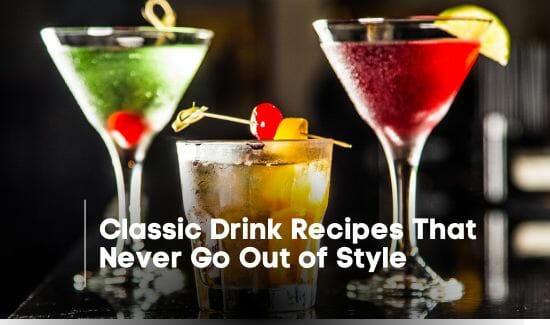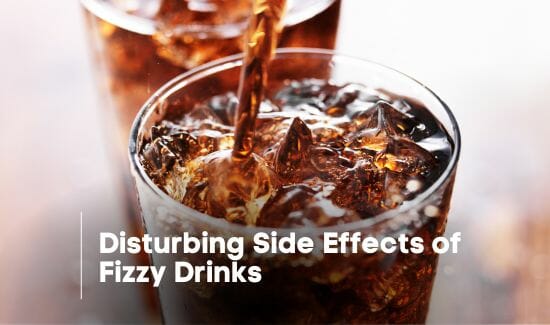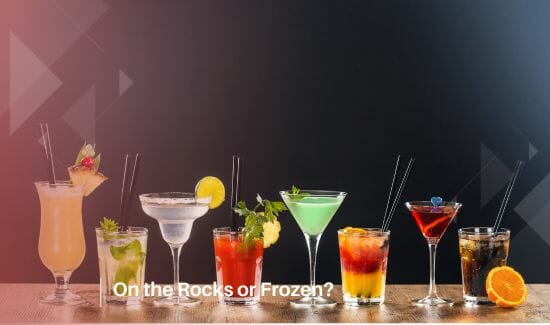
When it comes to cocktails, you have two main options for serving them: on the rocks or frozen. While some cocktails work well either way, others are better suited for one preparation over the other. In this article, we’ll break down the key factors to consider when deciding whether a cocktail should be served over ice or blended.
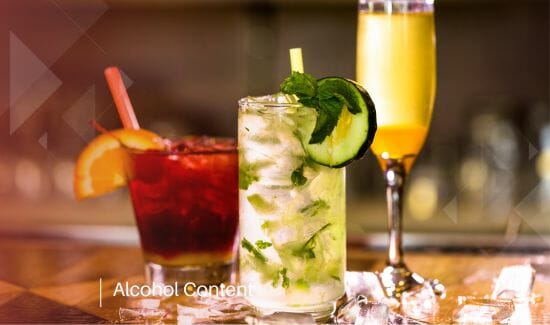
Alcohol Content
One of the most important things to consider is the alcohol content of the drink. Cocktails with higher alcohol content tend to work better when served on the rocks. The ice helps open up the flavors and dilute the booze a bit. Examples of cocktails that are best on the rocks include martinis, manhattans, and old-fashioned.
Drinks with lower alcohol content can more easily be transformed into frozen cocktails. The ice blends smoothly with the other ingredients without clashing. Classic frozen drinks like margaritas, daiquiris, and piña coladas fit into this category.

Ingredient Texture
Texture also plays a key role in determining if a cocktail can be frozen. Drinks containing fresh fruit, herbs, or other chunky ingredients are not ideal candidates for freezing. The texture of the drink completely changes once blended. Small particles of fruit or herb get broken down and alter the mouthfeel.
Clear, liquid ingredients like juices, syrups, and liqueurs freeze the best. They incorporate smoothly into the icy base. Drinks containing only these types of ingredients, such as a cosmopolitan or Long Island iced tea, make great frozen cocktails.
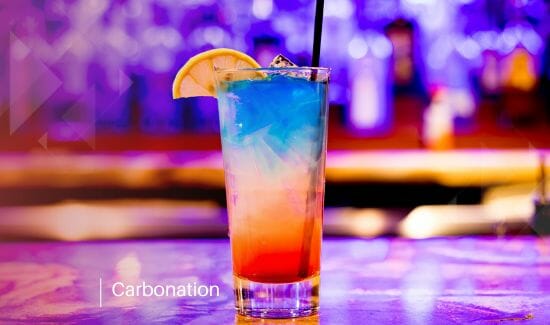
Carbonation
Carbonation causes issues when making frozen cocktails. The process of blending drinks releases carbon dioxide bubbles, resulting in a flat taste. Cocktails containing sparkling wines or sodas will lose their effervescence if frozen. For best results, carbonated mixers should be avoided or added after blending.
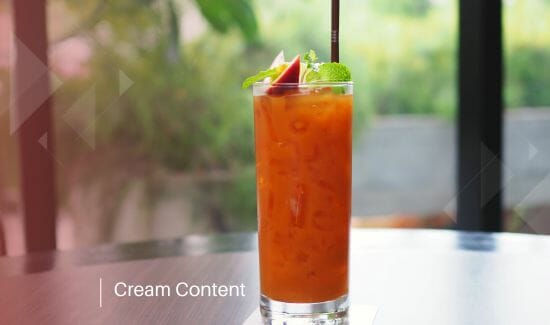
Cream Content
The fat content of dairy products prevents them from freezing properly. Cocktails containing cream or milk tend to take on a chunky, curdled texture when blended. Drinks like mudslides or screwdrivers are better served over ice to maintain a smooth sip. Lower-fat options like coconut milk freeze easier if you want a creamy frozen cocktail.
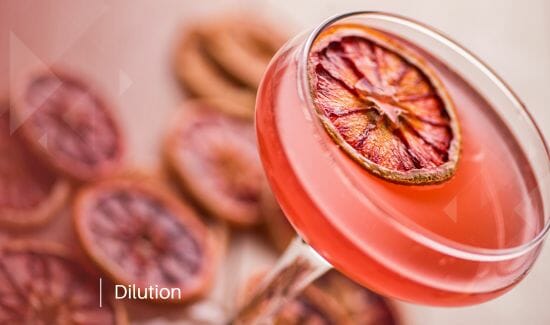
Dilution
One of the benefits of serving cocktails on the rocks is that they gradually dilute as the ice melts. This slow dilution allows the flavor layers to open up over time. Frozen cocktails don’t provide this same effect. The drink is already fully diluted during the blending process. While this can lend itself well to certain cocktails, drinks meant to be slowly sipped can taste unbalanced when frozen.
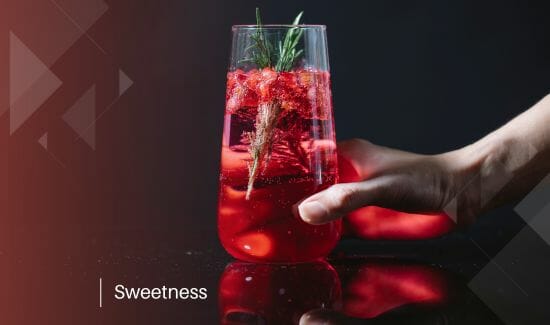
Sweetness
Sweet cocktails make ideal candidates for frozen blending. The sugar and other sweeteners help create a smooth, creamy texture. Tropical drinks often contain fruit juices and syrups that freeze and blend beautifully. Examples include piña coladas, strawberry daiquiris, and hurricanes. Sweeter cocktails also help mask the bitterness of hard liquors when frozen.

Balance
At the end of the day, it comes down to balance. Well-balanced cocktails that contain complementary flavors can successfully make the transition from on the rocks to frozen. Unbalanced cocktails may end up tasting too strong or too weak when blended with ice. Taste test a small sample before freezing the whole batch.
Conclusion
Determining whether a cocktail can be frozen or is better served on the rocks requires looking at multiple factors. Alcohol content, texture, carbonation, cream, dilution, sweetness, and overall balance all come into play. Drinks with higher alcohol content, chunky textures, carbonation, dairy, and complex flavor layers are best kept on ice. Smooth, fruity cocktails with moderate alcohol shine when blended into frozen form. Consider the makeup of the drink and do a trial run to find out if it’s freeze-friendly before serving. This will ensure your cocktail maintains maximum flavor and enjoyment, no matter which preparation you choose.
FAQs:
What happens if you freeze a carbonated cocktail?
Freezing a carbonated cocktail will cause it to lose its effervescence. The carbon dioxide bubbles are released during the blending process, resulting in a flat taste.
Do dairy cocktails freeze well?
Dairy cocktails don’t freeze well. The fat content of cream and milk prevents them from freezing smoothly, often resulting in a curdled texture. Low-fat coconut milk is a better option.
What kinds of ingredients work best in frozen cocktails?
Fruit juices, purees, syrups, liqueurs, and other liquid ingredients freeze the best. They blend together smoothly without altering texture. Avoid fresh fruits, herbs, sodas, and dairy products.
Why do some cocktails taste better on the rocks?
Serving cocktails on rocks allows for gradual dilution as the ice melts. This helps open up complex flavor layers over time. Frozen cocktails dilute everything at once, which can throw off the balance in nuanced drinks.
What makes a good frozen cocktail?
Sweet tropical flavors like fruit juices and syrups work well frozen. Drinks with moderate alcohol content and no carbonation or dairy also freeze nicely. The key is a cocktail with complementary flavors that maintain balance when blended.

As a dedicated blogger, I share insights, tips, and knowledge on all things caffeinated and beyond. I firmly believe that a well-brewed cup of coffee or a skillfully crafted cocktail has the power to unite people and ignite engaging conversations.

